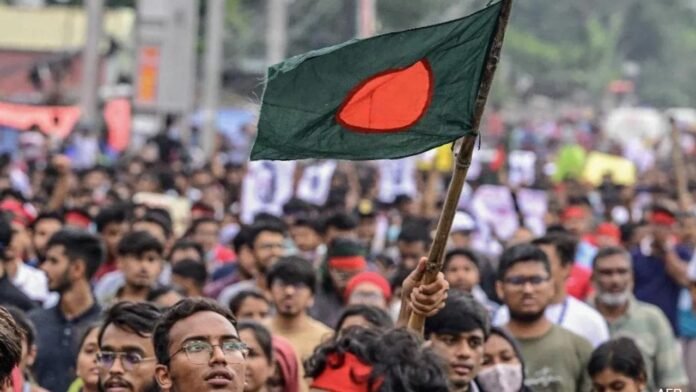Young protesters in Bangladesh are calling for Prime Minister Sheikh Hasina to step down. The 76-year-old leader has ruled with an iron fist since 2009, and this demand, once thought impossible, is being heard on the streets.
Bangladesh: A Deadly Standstill and Curfew
With an indefinite curfew imposed and a deadly standstill prevailing in Bangladesh, fears of violence escalation loom as hundreds of thousands plan to march towards Dhaka, the capital. Sheikh Hasina’s removal is being sought through these protests, which are among the biggest Bangladesh has ever seen.
Government’s Defiance
Sheikh Hasina has been defiant, condemning agitators as “terrorists.” Law Minister Anisul Huq described the calls for her resignation as “unjustified” and emotional. She offered to hold talks with protest leaders, but they rejected it, showing she would not step down without a fight that could lead to further bloodshed.
Growing Anger
In recent weeks, Hasina’s Awami League party claimed that political opponents provoked trouble. But anger among demonstrators appears louder than ever before: estimates suggest tens of thousands — including a wide cross-section beyond students — have sometimes taken part during this most serious challenge to Hasina since her disputed election victory in January.
Brutal Crackdown
The student-led protests sparked initially by job quota scrapping have continued even after quotas. Were dropped in early July following a fierce crackdown by police that left at least 90 people dead Sunday alone — including 13 officers killed, marking the worst single-day toll in recent history here.
Military Involvement
Desperate attempts to restore order after ransacked police stations and burning government buildings involved increasing reliance on the military, but the response remained restrained amid growing support from some ex-soldiers while the army still enjoyed respect among the general public. A military spokesperson said the army would perform its duty according to constitutional law enforcement agencies against unruly mobs.
Bangladesh: International Relations
India, Bangladesh’s neighbor, and biggest ally is likely to continue backing her because of the crackdown on anti-India militant groups’ strategic importance in Bangladeshi territory in northeastern states. However, strong sentiment against Delhi within the country is partly due to Delhi’s support for Hasina. Might influence the Indian stance if protests persist.
Opposition And Elections
Bangladesh Nationalist Party’s main opposition allies claim that the last three polls were neither free nor fair denial. Awami League Boycotting elections demanded an interim neutral administration to oversee voting.
WiderMovement
The current protests are not just politically motivated; they have garnered the support of people from all walks of life. Including opposition and Islamist parties. Nearly 300 people have been killed in recent weeks, many at the hands of police officers. This means that Hasina’s beleaguered government is faced with a serious threat due to the protesters’ resolve despite the violence.


